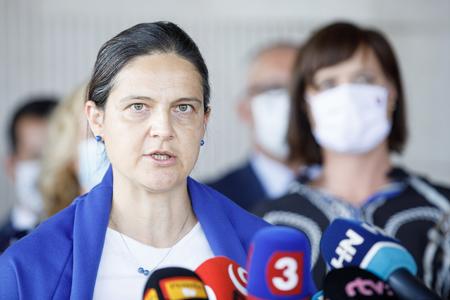Businesses have welcomed reduced bureaucracy, but there is still room for improvement. More systematic support in the regions is one example, says Igor Vranka, who leads a branch of the Soukeník – Štrpka law firm in eastern Slovakia.
Read in this interview:
How the pandemic changed the work of lawyers
Which of the anti-COVID measures affected clients the most
What would make Slovakia attractive for foreign investors
The Slovak Spectator: Has your work changed since the pandemic hit?
Igor Vranka (IV): During the restrictions, we managed to make home office work well for our firm, but we also needed to organise our contact with clients. In-person meetings are an absolute standard, since the relationship between us and clients must be based on confidence.
Who is Igor Vranka
A partner at the Soukeník – Štrpka law firm, Igor Vranka leads the firm’s eastern branch in the High Tatras and Košice. He is a member of the Slovak Bar Association since 2010, and specialises in corporate and business law.
The challenge was to secure confidential communication even at a distance. We have launched videoconferences from our own servers, adjusted for easy and user-friendly use but providing a maximum level of security. For necessary personal contacts, we were able to provide personal protection equipment for our employees and our clients. We now have pre-paid weekly slots for COVID-19 testing in Bratislava, so our employees can take advantage of that, and we regularly test those who meet clients most often.
TSS: Do your clients ask different questions or require different services?

IV: We knew clients would ask many questions, so we started a dedicated website, covid-19.akss.sk, where we publish laws and measures that have been passed and answers to questions that our clients ask. We are also proud of another project we launched during the pandemic, advokatipomahaju.sk. We invited our colleagues from other law firms and together we have secured and distributed personal protection equipment for lawyers, doctors, health care staff and municipalities.
TSS: Which of the measures affected your clients the most? Have they complained about any in particular?
IV: Coping with the pandemic brings along extraordinary measures that interfere with the daily life of people. And there is nothing else to do but to respect them. If the rule of law applies, then the state may impose restrictions but on the other hand the state must be ready to compensate them. We can talk about how much and how soon, but I cannot imagine that the state could prevent subjects from claiming damages and compensation of lost profits. In this case, the state should be able to impose restrictions, but only courts can say if someone has the right to be compensated or not.
TSS: You mean the recent amendment to the law on public health, which also included the proposal to cancel the right of people to claim compensation for damages and lost profit due to the pandemic?
IV: Exactly.
TSS: Do you think there will be many claims for damages and lawsuits against the state after the pandemic?


 Igor Vranka (source: Courtesy of Soukeník - Štrpka)
Igor Vranka (source: Courtesy of Soukeník - Štrpka)